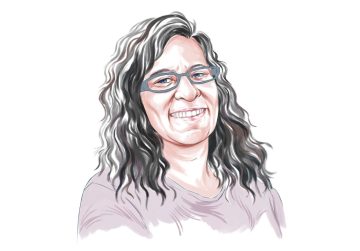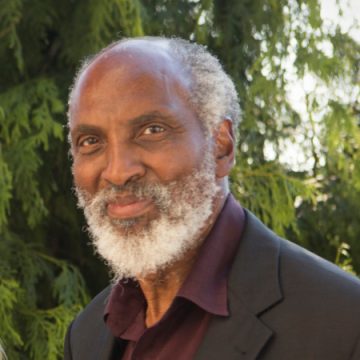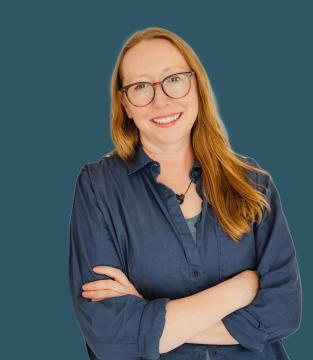Story
Lori Greene
Fellowship: 25 Years Out

“When you first meet someone, and you’re training them in a process of making art, and then the conversation goes deeper and deeper, and now you’ve learned their life story — that happens all the time in this process, and it feels like such an incredible gift to me.”
Mosaic artist Lori Greene (BF’94, ’10) was struggling to balance full-time work and operating her own studio when she received her first Bush Fellowship (today, Fellowships are only offered once per person). With financial support and encouragement from the Foundation, she transitioned from smaller pieces to acclaimed public commissions. Today, she runs Mosaic on a Stick, a community-based creative space for diverse groups in St. Paul, Minnesota.
What were you doing when you applied for the Fellowship?
I was pretty young, at the start of graduate school. I was living in Mahtomedi, Minnesota, and I went to live in Mexico for a year after I got the Bush Fellowship. I lived in a little adobe house in the mountains in Oaxaca. I also got a show in New York City, and so I made art for my show — all things that I suddenly could do because I had enough money that it wasn’t a day-by-day struggle, which it often is for artists.
How has the Fellowship helped you get to where you are?
I built my studio, Mosaic on a Stick, as a specific place for women, for healing. Right now I’m working on a memorial for survivors of sexual assault on Boom Island in Minneapolis. I’ve been working with several other women for this project to come about. There’s been a lot of truth telling. I’ve heard a lot of people’s stories, which are part of the pieces themselves.
Where do you find inspiration?
It’s in conversation with people. The reason I do community art is that so many conversations occur within that process that I don’t believe would occur on their own. When you first meet someone, and you’re training them in a process of making art, and then the conversation goes deeper and deeper, and now you’ve learned their life story — that happens all the time in this process, and it feels like such an incredible gift to me, and their stories become part of the piece itself.
What advice do you have for current and future Bush Fellows?
Be as honest and true to yourself as possible. Just try to look, as clear as you can, toward what you’re hoping to accomplish. And don’t let your ego be a part of it. I am not a very confident writer; I love reading and I love language, but I do not feel like that is one of my skill sets. For me, I had to be really simple and just think from my heart and speak from my heart about what I really wanted to do.
What aspect of the Fellowship did you find most valuable?
Honestly, it’s the confidence that it’s given me. I just keep moving forward. I apply for lots of things, I attempt lots of things, and I don’t get stymied by whether they are going to work or not. I do projects whether the money’s there or not.
Illustration by Allegra Lockstadt
Continue reading
-

News
Power of Bridging event
Mark your calendars for a special community event with john a. powell! Thanks to our friends at MPR News, we'll be hosting john at the Fitzgerald Theater on December 2 and hope you can join us!
-

News
Celebrating the 2025 Bush Prize honorees
Learn more about the 2025 Bush Prize honorees who are helping to make our region better for everyone!
-

News
Welcome to new Bush staff members
We are celebrating some new Bush colleagues and hope you get to meet them soon!